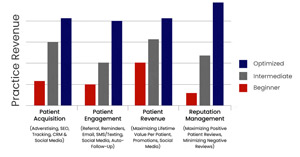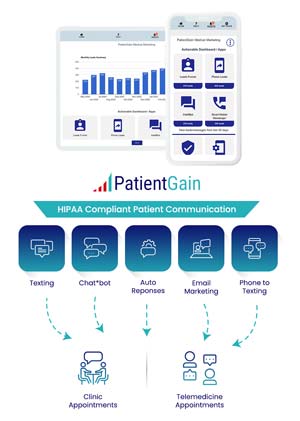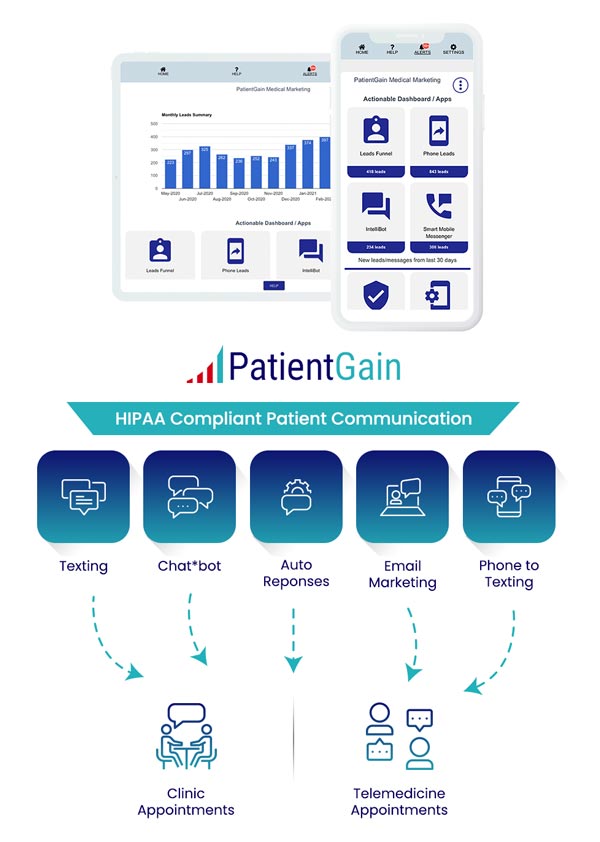What Is Medical Practice Marketing?
Medical practice marketing is your strategy, plans, software, staff, providers, medical SEO, social media, and your advertising budget all combined together in a cohesive and cost effective way to attract and convert new patients to your healthcare practice as a paying patient. It includes two main areas 1) Offline traditional media 2) Online modern digital media. However, all of your marketing starts with ethical and respectful marketing. And once you launch your campaigns, you have to measure the ROI (Return On Investment) of your investments.

Many medical practice managers consider it to be the strategic use of communication, outreach, branding, and promotional techniques tailored specifically for healthcare providers, including individual doctors, group practices, clinics, and specific service offerings. It involves attracting new patients, retaining existing ones, building a trusted and recognizable brand, promoting specific services and specialties, educating patients and communities, and facilitating ongoing patient engagement. Effective medical practice marketing emphasizes ethical communication, respects patient privacy, and adheres to regulatory compliance such as HIPAA, prioritizing trust, expertise, and value rather than merely selling services.
Key components of medical practice marketing typically include digital marketing strategies like professional website development, search engine optimization (SEO), local SEO (optimizing Google Business Profiles), social media marketing, content creation, email campaigns, and online reputation management. Additionally, medical practices often engage in referral marketing by building relationships with other healthcare professionals, internal marketing through improving patient experience and staff training, and traditional marketing techniques like community sponsorships, direct mail, or events. Together, these integrated approaches help healthcare providers meet business objectives by enhancing visibility, credibility, patient satisfaction, and overall practice growth.
Common Questions Asked By Doctors, Dentists and Practice Managers: 1) What is Medical Practice Marketing? 2) What Type of Medical Practice Needs Marketing? 3) How Much Does it Cost to Market a Practice? 4) Are There Any Results Based Marketing Systems? 4) Can a Good Website Improve My Medical Marketing? 5) Is Social Media Effective Source for New Patient Acquisition? PatientGain’s proven patient acquisition solution starts at $799 to $1999/mon. Used by top practices in USA and Canada. PatientGain is proven medical and dental marketing automation platform, based on AI agents, apps, HIPAA compliance and professional services. PatientGain offers many different packages and services for your healthcare practice.
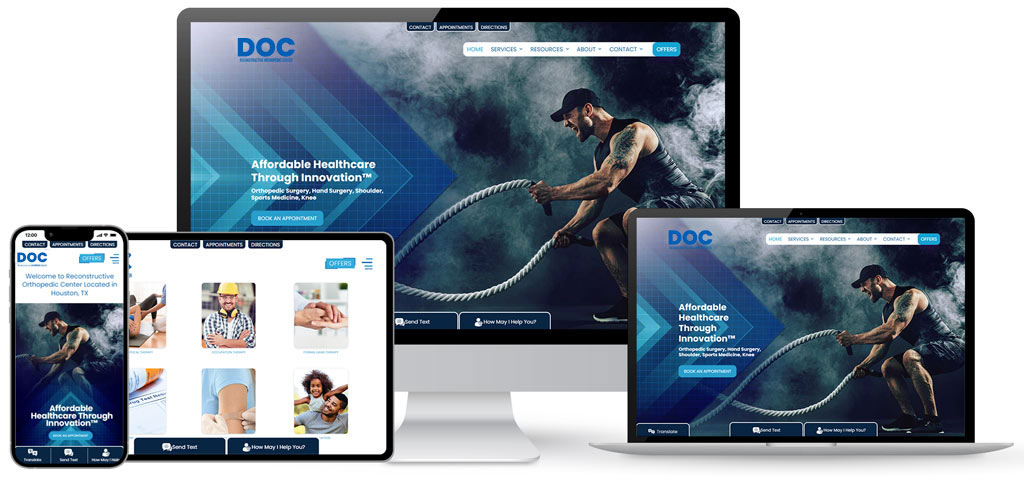
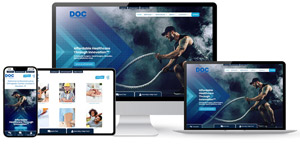
GOLD service starting at $799/mon is for practices in less competitive areas . Read more.
PLATINUM service starting at $1399/mon is for those practices who are in a medium-to-competitive market. Read more.
Example 1: Use case of a medical provider focusing on pain management, with 2 locations, 11 exam rooms, located in Texas. Extremely competitive area.
Using the Platinum service, no paid adverting, in the example below, in the month of December there are 703 effective leads. And in January there are 830 effective leads. Effective leads are calculated after removing sales people’s calls, and repeat existing patient calls. You will also note that a majority of patients will call you, rather than booking appointments. Hence as a practice manager or an owner provider, you want to have 2 key technologies in place. 1) Tracking of new patient calls. 2) If calls are missed from new patients, AI based software that sends them a text message to reengage them. This is called Missed Call Texting App for medical providers.
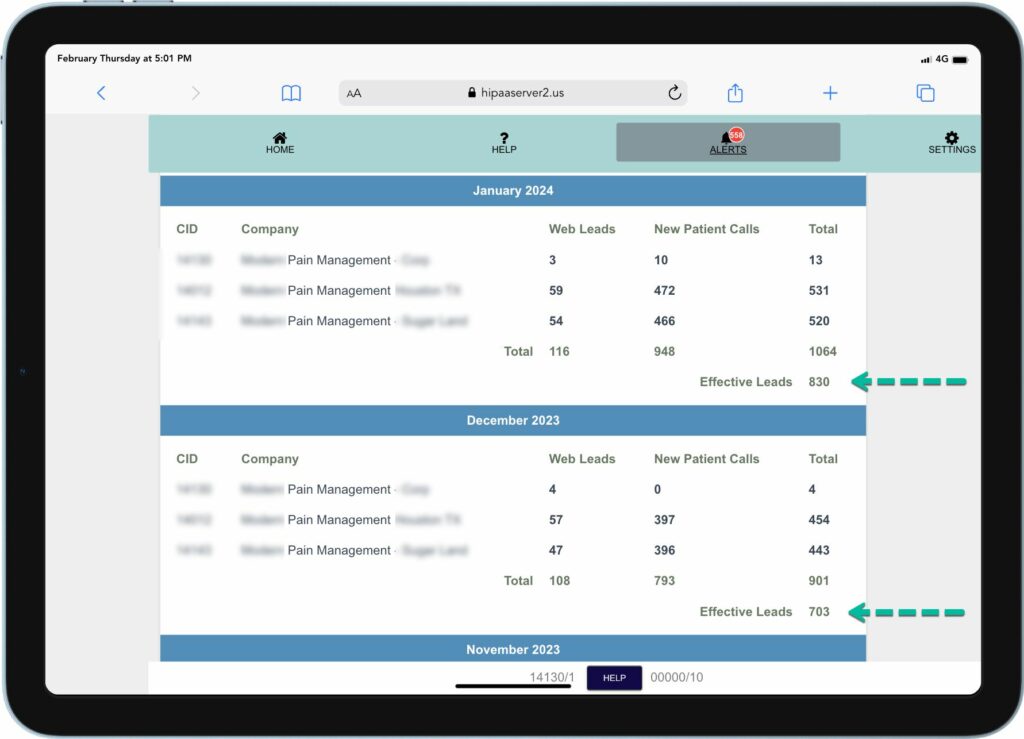
Example 2: Use case of a group wellness practice. With 1 established location and 3 new locations. Location is east coast, and extremely competitive area.
Using the Platinum service, with $3000/mon paid adverting, in the example below, in the month of March there are 337 effective leads. And in February there are 318 effective leads. Effective leads are calculated after removing sales people’s calls, and repeat existing patient calls. One location is established, and has been using PLATINUM service for 2 years. Three new locations are added recently. PLATINUM platform apps provide you with real-time dashboards, and professional support for your healthcare practice.,
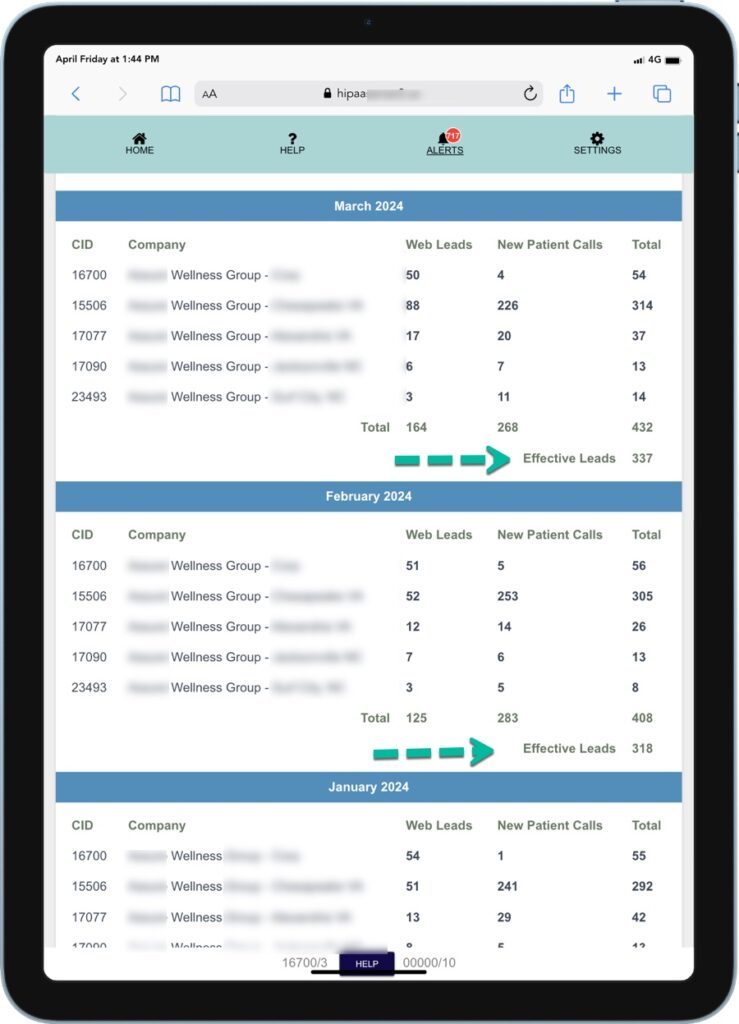
Example 3: Use case of a single location urgent care. Established urgent care, but had almost no online strategy before using PatientGain PLATINUM monthly service.
Performance dashboard: in August there were 2040 effective leads. Majority of urgent care patients, simply “call the clinic”. Using the Platinum service, with no advertising, in the example below, in the month of August, there were 2040 effective leads. This location is established, and has been using PLATINUM service for 5 years. PLATINUM platform apps provide you with real-time dashboards, and professional support for your healthcare practice.,
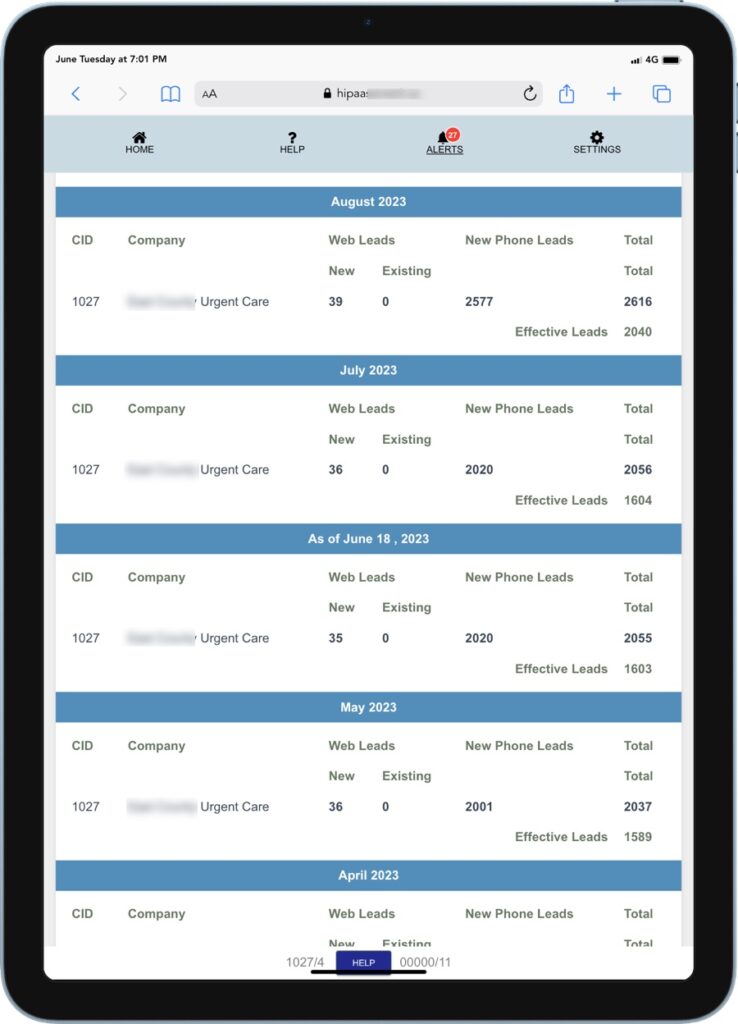
Table of Contents
Question 1) What is Patient Trust in Marketing?
Question 2) What is Medical Practice Marketing?
Question 3) What Type of Medical Practice Needs Marketing?
Question 4) How Much Does it Cost to Market a Practice?
Question 5) How is the ROI (Return On Investment) Calculated?
Question 6) How is the Patient Acquisition Cost Calculated?
Question 7) Does a Medical Practice Need Email Marketing?
Question 8) Should My Medical Practice Focus on Offline, Traditional Marketing?
Question 9) Does a Medical Practice Need Marketing Posts on Facebook and Instagram?
Question 10) Does a Medical Practice Need To Invest in Online Reviews Marketing?
Question 11) Is SEO Important For My Medical Practice Marketing?
Question 12) Do I Need To Invest in “Funnel Marketing” for My Medical Practice?
Question 13) Why Do I Need Marketing Chatbot on My Medical Practice Website?
Question 14) Is Social Media Important For My Medical Practice?
Question 15) How Should I Present My Medical Practice’s Content to My Patients?
Question 16) What is Website Patient Experience?
Question 17) What is Website Patient Conversion?
Question 18) What Is a Medical Marketer and What Does This Person Do Every Month for My Practice?
Question 19) What Are 4 Key Services Offered by Your Company to Help With Medical Practice Marketing?
Question 20) Medical SEO vs. Medical Advertising – Which One Is Better?
Question 21) Do I need to worry about ADA (Americans with Disabilities Act of 1990)?
Question 22) How to Build a Strong Brand Presence for a Medical Practice
Example of Effective Medical Practice Marketing Promotion


21 Good medical practice marketing questions asked by providers and practice managers:
Answer: Build trust and loyalty with patients: A medical practice can not be some stranger to a patient looking for medical care. The patients at a practice are increasingly involved in their medical care and well-being and want to be a partner in that care with their provider. During an appointment, they are not some sponge ready to absorb all the information a provider or staff member unloads on them. Instead, they want the attention and focus of the staff at the practice. There are many other competitors out there, so be sure to convey a sense of gratitude towards them for trusting the practice with their care. It starts with ethical and respectful marketing. Effective medical marketing will often make an emotional connection with people. Empathy is powerful emotion and builds a connection with your audience. Emotional medical marketing harnesses the nuanced emotional landscape of potential patients to foster deeper connections and encourage them to seek treatment. This strategy leverages the innate emotional responses associated with healthcare to engage patients more profoundly and persuasively.
A frequent complaint from patients is that they feel doctors do not listen to them. They are either nose deep in paperwork or are impatiently asking someone to get to the point of the conversation. Healthcare is becoming more of a conversation, so doctors should engage with their patients. Not only should they pay attention to what they say, but they should ask follow-up questions and take notes about what the patient says. A good doctor knows to listen to what a patient says and watch for body language and other nonverbal cues that will tell them about their health. A patient may not be immediately forthcoming about a medical concern unless asked about it. Notes about conversations and observations will help doctors follow up later with their patients at future appointments.
Another thing to consider when a practice wants to build trust and loyalty with a patient is how a practice interacts with patients between appointments. A patient will be loyal and trust a medical practice much more if they are available beyond the times they are there for an appointment. With that in mind, a medical practice should be as available as possible to all its patients. This does not mean they need someone sitting by a phone 24 hours a day to take phone calls, but they should make communication easy. One popular way is to have a secure contact form for patients to submit messages to a medical practice. These messages must be submitted over an encrypted and secure connection and stored on a HIPAA Compliant dashboard for staff to manage. Any data sent to a medical practice needs to be protected, so do not put an unsecured email address on a website and ask patients to email their questions or issues.
Another popular way to promote communication of advice or answer medical questions between a medical practice and a patient is to make two-way text messaging available. Many people find text messages to be a convenient and preferable way of communicating. Like the submission form, text messages must be done with HIPAA security. Any texts sent to a medical practice need to be stored on a HIPAA-compliant dashboard. An assigned staff member can reply to a current or potential patient. Remember that any replies should abstain from sending medical or personal health information since the phone it is being sent is not secured.
The best way to build trust and loyalty with patients is to listen to them and give them plenty of opportunities to communicate with a practice and their provider.
Medical practice marketing is an essential strategy that combines both traditional and digital marketing techniques to enhance the visibility, reputation, and patient engagement of healthcare providers. Here’s an integrated approach detailing how medical practices can effectively market their services:
Digital Marketing Components
Website: User-Friendly and Informative: Your practice’s website should be easy to navigate, mobile-friendly, and provide comprehensive information about your services and staff qualifications.
Search Engine Optimization (SEO)
Visibility in Search Results: Optimize your website with relevant keywords to rank higher in search results, making it easier for potential patients to find your practice online.
Social Media Marketing
Engagement and Brand Awareness: Utilize platforms like Facebook, Instagram, and Twitter to engage with patients, share health-related content, and build community connections.
Online Advertising
Targeted Campaigns: Use platforms like Google Ads and social media ads to reach specific demographics who are actively searching for healthcare services.
Email Marketing
Lead Nurturing: Build an email list to send regular updates, health tips, and promotional content directly to interested patients, helping to nurture ongoing relationships.
Content Marketing
Educational Content: Create valuable blog posts, videos, and infographics that discuss various health topics, procedures, and news, positioning your practice as a trusted resource.
Patient Reviews and Reputation Management
Trust Building: Actively encourage patients to leave positive reviews and manage your online reputation by responding to feedback promptly and appropriately.
Traditional Marketing Components
Print Advertising
Local Publications: Utilize print ads in local newspapers, magazines, and medical journals to reach a broader audience in your community.
Community Engagement
Sponsorships and Events: Participate in or sponsor local health fairs, school events, and community gatherings to raise awareness about your practice and services.
Networking
Physician-to-Physician Referrals: Establish and maintain relationships with other healthcare providers in your area to create a referral network that benefits all parties.
Objectives of Medical Practice Marketing
Patient Acquisition: Attract new patients through a blend of SEO, social media, and targeted advertising.
Patient Retention: Keep existing patients engaged through excellent service, regular communication, and educational content.
Brand Loyalty and Awareness: Develop a recognizable and trusted brand that stands out in a competitive healthcare market.
Differentiation: Highlight unique services, specialized care, or innovative treatment options that differentiate your practice from others.
Education: Offer valuable health information that establishes your practice as a leader in the field.
By integrating these digital and traditional marketing strategies, medical practices can not only enhance their online presence but also foster deeper connections with their community, build a strong brand, and effectively manage their reputation, leading to increased patient trust and loyalty. This comprehensive approach ensures a robust marketing plan that supports the growth and sustainability of the practice.
In today’s competitive healthcare landscape, nearly every type of medical practice can benefit from strategic marketing. Marketing helps practices attract new patients, retain existing ones, and build a strong community presence. Here’s a comprehensive look at why marketing is essential and how different medical practices can leverage it effectively. Medical practice’s who have capacity to take on more paying patients, should focus on marketing and your marketing plan for new patient acquisition. Medical practices can be physicians, dentists, surgeons, medical spas, urgent care and many more.
Patient marketing for your medical practice is key to the success of your healthcare business. Consider this:
A. You will not be able to grow your business if you do not increase your patient count.
B. You cannot improve your patient count if your community does not know your medical practice exists and the services you offer.
C. Therefore, you must market effectively to bring awareness to your target audience.
Why Marketing is Essential for Medical Practices
Overcoming Competition
Crowded Market: The healthcare sector is saturated, making it vital for practices to distinguish themselves. Effective marketing helps you stand out and attract new patients.
Driving Patient Acquisition
Growth Necessity: Even well-established practices need a steady influx of new patients to sustain and grow. Marketing strategies can drive patient acquisition by making your services visible to a broader audience.
Enhancing Patient Retention
Staying Top-of-Mind: Consistent marketing efforts remind existing patients of your services, encouraging regular check-ups and fostering patient loyalty.
Building Brand Awareness
Community Trust: Establishing a strong, recognizable brand helps position your practice as a trusted healthcare provider in the community.
Questions you should ask yourself before working on a marketing budget:
A. How much is each new patient worth to you?
B. What is immediate value of initial treatment?
C. What is the life-time value of each patient?
There’s no one-size-fits-all answer. Industry averages suggest practices spend anywhere from 1% to 12% of their gross revenue on marketing. Newer practices with limited existing clientele might need to invest a higher percentage (5% or more) to establish themselves, while established practices aiming to maintain patient flow might allocate a lower percentage (around 3%).
Some experts recommend allocating a specific budget based on your practice’s goals:
Maintain patient base: 3% of revenue
Grow slowly: 4-5% of revenue
Rapid growth: 5%+ of revenue
Once you identified the “value” of each new patient, then you will look at cost effective solutions for medical marketing. It can cost from anywhere from $1000 per month for a small practice to $10,000 per month for a larger practice with multiple providers and locations.
The formula is as follows. Total revenue generated MINUS dollars spent on a marketing campaign. Then dividing it by dollars spent on a marketing campaign = ROI . Read more and see examples on this page.
The formula is as follows: Total revenue generated – minus total spent on advertising campaign , then take result and divide by total spent on advertising campaign = Return on investment
Total budget spent divided by number of new patients acquired = Patient Acquisition Cost
Let’s assume you have a $2000 per month advertising budget. Your advertising campaign produces 1) 113 new patient phone calls 2) 25 ChatBot inquiries 3) 54 Text inquiries in a given month. Total of 192 new leads or inquiries. After subtracting certain low quality or duplicate inquiries you have legitimate 145 leads. Which means it cost you $13.79 per lead. If your conversion rate is 38%, hence you converted 55 new patients from 145 leads. Next if you divide the advertising budget $2000 by 55, you get $36.36. This is your Patient Acquisition Cost.
Email Marketing is vital for clinics and doctors, as it helps you promote your healthcare brand, engage with your patients, and even reactivate past patients. To run effective campaigns, your clinic needs to have a clean data, and a targeted list of patients that you’re marketing to. 68% of your patients are reading your emails on mobile devices, so the Email campaigns should be setup in a single column layout.
Most of the marketing has shifted to digital mediums, however there are still specific areas that lend to good ROI (return on investment) for your advertising dollars. For example, a medical spa focusing specifically on liposuction and coolsculpting procedure, has created 3 minute and 5 minute infomercials where the provider is interviewed about the procedure and outcomes. The media company places these “infomercials” on specific channels like food and cooking related TV channels. Although the investment is approx $8600/mon for one year commitment, the results are quite good, according to the owner of the medical spa. So if your budget is large enough, you can distribute the advertising budget across multiple channels.
Short answer is YES!!! You need to post about your services on Facebook and Instagram, and don’t forget Google posts. As social media and specifically Facebook becomes more important for users all over the world, businesses need to do more on Facebook. How do you stand out from thousands of other businesses who are advertising and working to get the attention and “Likes” of targeted users? The first step in answering this question is to look at the leaders in your space and your industry to see what they are doing on Social Media, and more specifically, on Facebook. PatientGain.com’s Facebook apps platform provides you with a competitive advantage.
YES!!! This question should be on the top of this list. As you service your patients and provide an excellent service you will find out that patients are quick to complain, and very hesitant to post a thank you or a good review for you. In the ideal world, every patient should be asked this question: Are you happy with the service? Would you recommend our practice? This process can be very difficult. There are several automation based apps that can assist you acquire positive reviews.
YES!!! SEO or Search Engine Optimization for your healthcare practice could be the biggest marketing asset. However it is not easy and is very complex. It also takes time to establish. You can read more about how medical SEO works and also what is the secret sauce of medical SEO. However, SEO takes some time, and requires a professional to improve your rankings. Most healthcare companies would benefit from investments into their SEO rankings. To truly benefit from SEO for your medical practice website, most medical websites will start seeing some traffic in the 1 to 3 months, however you are not likely to get to the top of Google search in 1 to 3 months, for a new website. The real success lies in years ahead, and continuous improvement over many months, and possible years.
Funnel marketing is the journey a patient takes from first being aware of your medical practice to finally become a patient. Most practices will benefit from using apps and software that help you convert more patients. It also depends on your practice. If you are a medical practice that focuses of services that require multiple touch points, then you will see larger impact. Read more about funnel marketing for medical and dental practices here.
A medical chatbot can help achieve some of those goals for your medical practice. Using a medical chatbot to augment your current staff to handle patient service questions is a cost-effective way to increase the satisfaction of your patients and provide them with the information they need. We see conversion rates increase from marketing Chatbots.
Yes. Studies have shown that the mother overwhelmingly makes healthcare decisions in households with children under 18. The medical practice would be wise to target their marketing efforts to this critical demographic. Some key facts:
1. Over three fourths of mothers are active on social media channels
2. Over half were influenced to decide after reading a blog
3. 2 in 5 mothers purchased an item or service based on a Facebook recommendation
When writing content for your email marketing campaigns, your social media posts, or your website, keep this in mind: Your patients did not go to medical school with you. In other words, you will want to write using words they can understand and comprehend. The average American reads at a 7th-grade level, meaning a significant portion of the population reads below that level. Writing using terms and everyday language your community understands while mixing in medical terms for SEO purposes is generally the best way to create content. Striking the right balance will allow you to look authoritative but also not talk over their heads. You want your medical practice’s website to have a conversation with a potential patient, not lecture them about a health topic.
Majority of the patients who visit your website, do so on a mobile device, like Apple’s iPhone or an Android based phone. You only have 14 seconds to grab their attention. The design of the mobile and desktop is very important for the patient conversion. Placing buttons for call-to-action in certain spots is important. Mobile website should have “locked” menu areas so certain call to action is always available to the user. Adding a texting app to the website increases conversion. A medical chatbot will even further increase the conversions.
Many providers and practice managers believe that once a potential patient visits your website, they will automatically take an action. “Taking an action” is called a website conversion. Examples of your healthcare website conversion could be 1) Calling you from the number listed on your website 2) Sending you a Text/SMS from the texting app on your website 3) Using the Medical ChatBot installed on your medical website to initiate an inquiry 4) Filling out a contact form 5) Going to the patient portal link and registering. These are some examples. You website should be designed in such a way that it causes a patient to take an action. The website should also be A/B tested for high conversion rates.
A medical practice needs to promote its business to be successful and compete with other medical practices in a community. The owner and doctors at a medical practice are entirely too busy to give the proper amount of attention to marketing their healthcare business. With that in mind, a medical marketer is often tapped to provide marketing support for a medical practice. They have a wide range of skills and marketing strategies to successfully promote a business and work with doctors, owners, and other stakeholders to develop an effective medical marketing plan. Read more about specific tasks this person can person for you.
Effective marketing strategies and ROI based advertising for doctors is key to your online success. Every practice is different. We offer 4 different medical marketing services for your medical clinic. 1) GOLD monthly service 2) PLATINUM monthly service 3) SILVER monthly service 4) Custom service, tailored to your exact needs. Read more about pricing and details of the services on this page.
Both are important. They complement each other, however there is an overlap. Depending on your competition, location and type of services you offer, you may need to invest in both strategies. When you are promoting your medical practice, there are many ways to get the word out about the services you offer at your location to your community. If you are unfamiliar with the world of marketing, a variety of terms may begin to blend. While they may seem interchangeable, they are not. It is essential to know the difference between two critical medical marketing techniques that many practices use: Medical SEO & Medical Advertising. Both will play vital roles in getting more people through the front door to your business. Read more about examples here.
Yes, as a healthcare provider, you should be aware of ADA requirements. The Americans with Disabilities Act, ADA, is a federal law passed in 1990 that aims to protect the rights of disabled people to ensure they are not discriminated against due to their disability. Most people are familiar with the physical accommodations by the ADA that businesses are required to make, such as automatic door openers and wheelchair ramps. Now these guidelines apply to the internet and medical websites as well. Read more how you can adhere to some requirements from ADA.
Answer: Key Steps for Building a Strong Medical Practice Brand
a) Define Your Brand Identity: Clarify your values, voice, and visual elements.
b) Online Presence: Build a professional website, optimize for SEO, and stay active on social media.
c) Offline Presence: Engage with your local community and use targeted offline marketing.
d) Consistent Communication: Use personalized messaging and automated systems to stay connected.
e) Ongoing Monitoring: Track metrics and adjust strategies for continuous growth.
By consistently implementing these strategies, your medical practice can build a recognizable, patient-centered brand presence, attract new patients, and establish itself as a trusted leader in the community.
Define Your Brand Identity
A strong brand starts with clearly defining what makes your practice unique and how you want to be perceived.
• Unique Value Proposition (UVP): Identify what makes your practice stand out (e.g., specialized care, advanced technology, compassionate service).
• Brand Values: Emphasize the core principles guiding your care (e.g., integrity, patient safety, innovation).
• Target Audience: Identify your ideal patients based on demographics, health needs, and preferences.
• Brand Voice and Tone: Decide how you’ll communicate with patients—whether friendly, professional, or compassionate.
• Visual Identity: Develop a cohesive visual style, including a professional logo, color scheme, and typography.
Why It Matters:
A clearly defined brand identity builds recognition, strengthens credibility, and ensures consistent messaging across all platforms.
Establish a Strong Online Presence
A professional digital presence is essential for patient trust and visibility.
Professional Website
• User-Friendly Design: Ensure mobile-friendliness, fast load times, and easy navigation.
• Service Descriptions & Bios: Provide detailed descriptions of services, conditions treated, and provider bios.
• Online Appointment Scheduling: Offer a seamless online booking system for patient convenience.
Search Engine Optimization (SEO)
• Local SEO Optimization: Use keywords like “family doctor in [City]” and optimize your Google Business Profile for local visibility.
• Technical SEO: Improve site speed, mobile responsiveness, and metadata for better rankings.
• Content Marketing: Publish service pages with infographics, FAQs, and educational resources tailored to your services.
Social Media Marketing
• Engagement: Maintain active profiles on platforms like Facebook, Instagram, and LinkedIn.
• Valuable Content: Share health tips, success stories, and practice updates.
• Targeted Ads: Run paid ads targeting specific patient demographics.
Online Reviews & Reputation Management
• Encourage Patient Reviews: Ask satisfied patients to leave feedback on platforms like Google, Yelp, and Healthgrades.
• Respond Professionally: Address both positive and negative reviews with empathy and professionalism.
Why It Matters:
A robust online presence ensures your practice is easily discoverable while building credibility and patient trust.
Build Your Offline Presence
While digital marketing is essential, offline strategies help solidify local visibility and community trust.
• Community Involvement: Participate in local health fairs, sponsor community events, and offer free health screenings.
• Local Advertising: Place ads in community newspapers, magazines, and radio stations.
• Referral Programs: Incentivize existing patients and partner with other healthcare providers for referrals.
Why It Matters:
Community involvement helps build personal connections and strengthens local brand recognition.
Deliver Consistent and Compassionate Patient Communication
Consistent and thoughtful communication reinforces your practice’s dedication to patient care.
• Email Marketing: Send newsletters with health tips, practice updates, and special offers.
• Patient Follow-Ups: Maintain open communication with follow-ups after appointments and wellness reminders.
• Automated Messaging: Use text reminders and calls for appointment confirmations and wellness check-ins.
Why It Matters:
Clear communication improves patient retention and satisfaction while reinforcing your brand values.
Monitor and Adjust Your Strategy
A successful brand presence requires ongoing monitoring and adjustments.
• Track Key Metrics: Monitor website traffic, patient inquiries, social media engagement, and review scores.
• Data Analysis: Identify trends and areas for improvement based on performance data.
• Refinement: Adjust your strategies to stay aligned with patient needs and industry trends.
Why It Matters:
Continuous optimization ensures your marketing efforts remain effective and responsive to patient behaviors.

